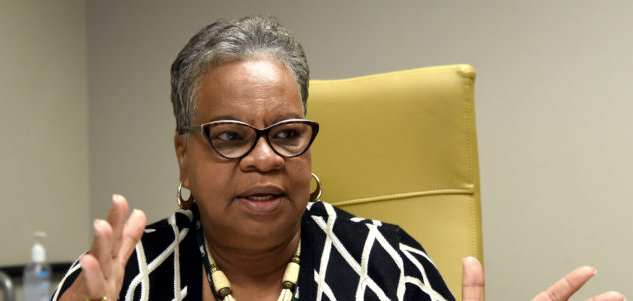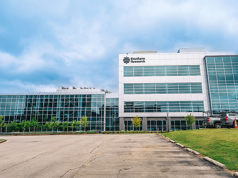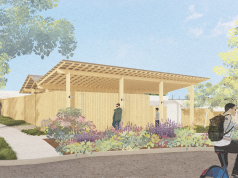By Erica Wright
The Birmingham Times
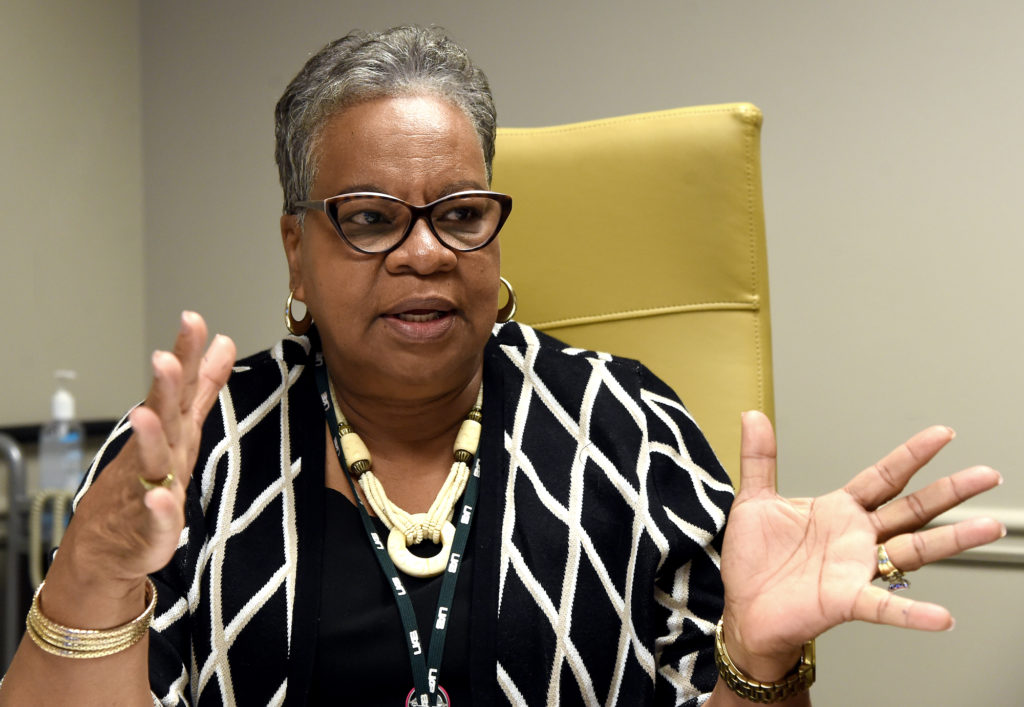
Paulette Patterson Dilworth, PhD, is the vice president for diversity, equity, and inclusion and chief diversity officer at the University of Alabama at Birmingham (UAB)—and she is no stranger to issues involving equity and Civil Rights.
“I came of age during the height of the Civil Rights Movement, and people want to know what it was like during that time. Sometimes I like to talk about it, and sometimes I don’t,” said Dilworth, who grew up in Selma, Ala., and was one of six students to integrate the then-all-white A.G. Parrish High School, which is now Selma High School.
“That happened in 1965, but people fail to realize that [the landmark Supreme Court school desegregation case] Brown v. Board of Education was in 1954, which means people were still reluctant to integrate schools,” she said. “That is something that struck me when I was really old enough to understand what was going on. … There was a refusal on the part of white educators to have the schools integrated.”
After graduating from high school, Dilworth enrolled at Florida Agricultural and Mechanical University (FAMU) in Tallahassee, Fla., which was a very intentional decision: “I wanted to be at a historically black college or university, [HBCU],” she said. “One of the reasons I felt that was what I needed at the time was because of the experience I had in high school.”
Dilworth had attended Brantley High School—an all-black high school that required a 60-mile bus ride, round trip every day—before she went to the all-white high school.
“My experience … at the white school and that environment could sometimes be categorized as kind of hostile,” she said. “Not all the experiences were, but there were moments where there was deliberate hostility, so attending FAMU was very intentional.”
Dilworth initially attended FAMU to major in journalism, but the program was eliminated, so she studied political science and got certified to teach social studies.
Eye-Opener
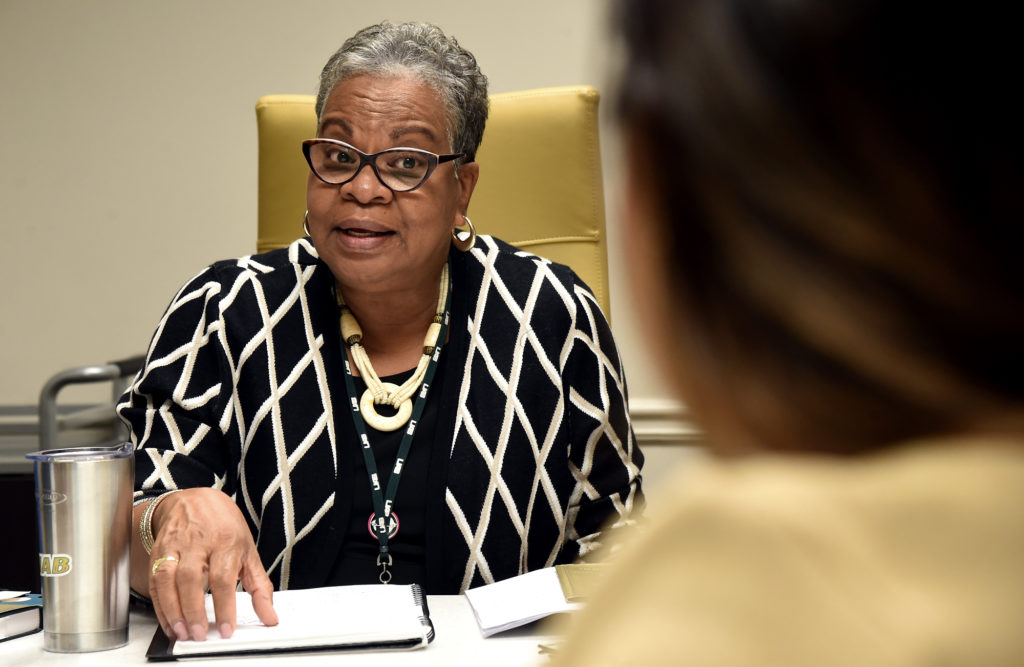
She returned to Selma after graduating, where she taught social studies at Brantley Junior High School for two years, but she was not prepared for what she saw. The students weren’t getting materials and other tools for success when they showed up for school.
“It was like, ‘How am I going to teach these kids?’” she said.
Dilworth remembers talking to one of her classes about the film “Lord of the Flies” and using the words “film” and “motion picture” during her lecture. Finally, one of the students raised a hand and asked, “Ms. Patterson, what’s a motion picture?”
She asked the class of seventh graders, “How many of you have ever been to a movie?” None of them had. “Lord of the Flies” was showing in theaters at the time and when the school would not pay for transportation to get the students to the theatre, Dilworth paid for a bus to take her students.
“That was just one of those things that I’m sure was a defining moment for a lot of them,” she said. “I think of things as defining moments. For them, it was being able to step outside of that school and do something outside of that community.
“Though [we went to see the movie] in Selma, some of them had never stepped outside of the [neighborhoods where they] lived. It was an eye-opener for me. Sadly enough, I went home and told my mother, ‘This is my last year. I can’t do this anymore, not now and not with the way things are set up.’ I felt like, for me, there was going to be a constant struggle of trying to get kids to a particular place.”
Though Dilworth left Selma and returned to Florida, she does visit her hometown periodically. Most recently, she was there sitting in on a ninth-grade English class at Selma High School as part of the Gaining Early Awareness and Readiness for Undergraduate Programs (GEAR UP), a federally funded initiative that empowers students to attend and succeed in college.
Higher Education
After returning to FAMU as a recruiter, Dilworth embarked on a 30-year career in higher education and as a liaison officer.
“I recruited students for the State University of Florida, but my focus was on FAMU,” she said. “I did that for 10 years, then my family and I relocated to Atlanta, where I worked at Emory University for 15 years.”
At Emory, Dilworth earned her master’s and doctorate degrees. She then went to Indiana Bloomington University in Bloomington, Ind., where she worked for eight years as an associate professor. From there, she went to Auburn University, in Auburn, Ala., where she served as assistant vice president for access and community initiatives in the school’s Office of Multicultural Programs.
Excellence in Diversity
Since assuming her current role at UAB in January 2016, Dilworth said one of the accomplishments she is most proud of is that the school recently received a 2018 Higher Education Excellence in Diversity (HEED) Insight into Diversity Higher Education Excellence Award, which recognizes colleges and universities that demonstrate an outstanding commitment to diversity and inclusion.
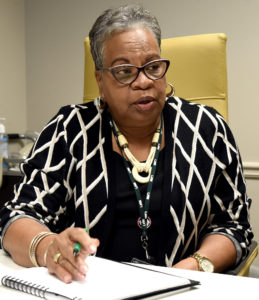
“We were also recognized as a Diversity Champion. We’re one of 80 institutions this year that received that [honor] primarily because of the focus on our efforts that cut across initiatives associated with faculty, staff, and students,” she said. “We’ve also completed our strategic diversity plan, which was a major hurdle because it requires input from across the enterprise.”
Dilworth also was recently elected president of Alabama Association of Higher Education Diversity Officers (ALAHEDO), which advises its members on issues, policies, and practices that affect diversity at higher education institutions in the state. The association proposes initiatives to ensure that Alabama’s higher education institutions fairly meet the needs of underrepresented faculty, staff, and students.
Still, Dilworth is an educator, and teaches a lot of bright students. Asked what gives her the most hope when she sets foot on campus, she said, “We have a great opportunity to help the next generation of citizens learn and grow and challenge themselves to become the best versions of themselves.
“Through our efforts, we help students to pursue their hopes and dreams for the future.”
Click here to read more stories about UAB: Critical Conversations; Keystone Fellows; BMEN.


